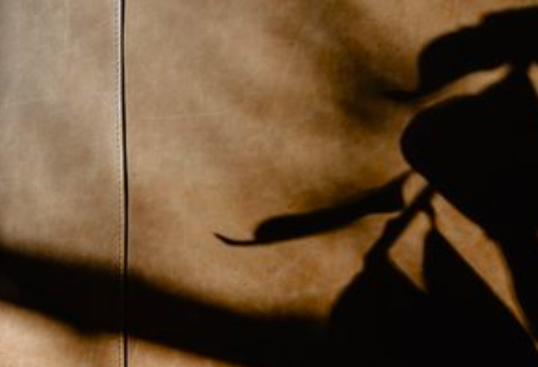
Lay People
S. Romi Mukherjee
Volume Two, Issue Two, “Senses,” Poetry
I.
we are no longer
allowed to breathe
through our bodies
space is rejected as void
and the way
– the open
foreclosed
like our aspirations
by arrhythmia
and dejecta,
onus of social somatics
breed
peddlers of lack
where there is plenum,
they profit on your pain
ever poised to strangle,
infinity
in pablum epoch
lay people
stranded
localized respiration
palpitation half sleep
of hostage,
it’s just noise… thoughts
Machinations of the supra-clock
the body abjected
to fetter
subject to stain,
trial of Being
in the sacking of spaciousness
they want to render us coherent
inspire catatonic crawls
defilements
in the marketplace
we are bought and sold
ad infinitum
the migrants carry tents
The vulgarians mock emanation
commit us all to the silos
of this supra-clinic
tame
and maul becomings
II.
there can be no body breath
when the glorious pores
of the primal face
are smothered by personae
Prana extinguished
so too ganglia and plexus
along with all that is indestructible and kind
cut
over and over again
by purveyors of taxonomy and classification
blind
clinging to Being
they posit that the cosmos is a closed system
And nobody on Earth
knows what to do about it
everybody should do something
about their selves
something is missing
disavowed by wishful countenance
not worth nothing
when the world is on fire
burning in the lungs
the nostrils
many bodies play dead
on the beaches in the hot season
pores suffocated by lotion
arrogant crowds
shills for bourgeois reason
bothered by the saltiness of the mouth,
steadfast harbinger
it is,
teacher of expanse
III.
What is the body of the breath?
longing
curved
circular¹
settling around
sui generis
it serves no one
does not need to pray
like primal ethereal
sacrifice itself
for creation and the elements
above the flailing frays
of being born
creation depends on dissipation
and the body breath
and children who play
who never sigh
turning the wheel
experts in becoming
mutable
IV.
But I cannot find a quiet place. In the west, the groves are gone.
I am reduced to nose mouth throat bronchi
mammal
no body
tragedy of the precipice
of knowing and practice
the translucence
little drops of radiance
ordinary grace
rationed
so rare
trammeled by the condition of being born,
lay people
manhandled
- pushed off the path
Where is the diamond diaphanous
that once cared for this quotidian?
parrying the strain
of living in society
where we are all,
tenacity broke
spiritus compromised
laboring bodies
hyper tensions,
some carry mattresses on their backs
all are weaned on teat of howler
- laissez-faire
suckled on werewolf
- scarcity and debt
no more tarrying with creations fecund
burning for full breath
breathing only under duress
grieving
loneliness is an epidemic too,
loss of intrepid grace
trampled,
along with the safety,
the fairness,
of a lifeworld
V.
The inhale is life. The exhale is death. What happens when the inhale is death too?
VI.
In the interim, and until then, you are not absolved of your obligations. You must toil for this and also explain death to a child.
What dies?
All death
not just friends and family
Explain All Death.
without speculation
VII.
We blow white balloons
release them by the lake
abode of the ancient sturgeon
the dead
buoyed and transposed above
soft eyes
we squint the white dot
till it enters into full repose
of original self-regulating system
breath pushing our breath pushing their breath
Prana assemblage
tint and timbre of consoling vitalism
wisdom of wafting spheres
purging the traumatic kernel of its...
It is not uncommon to find exhausted
white balloons
floating on the water above the sturgeon
perched on backyard branches
resting
swaying on unmowed lawns
comingling mana
in the raked leaves of
the fall
fodder for Pachamama
fate
of ether stowaways
costs nothing
to look for any home,
the commons
Was it a birthday party?
Was it the sigh of a tired clown?
Was it a mother
or father,
with a child by the water
blowing balloons?
dying to explain it away
no matter,
soon,
it is all around us
¹ In 1993, at the Hothouse in Chicago, the saxophonist, Charles Gayle -“Streets” - the homeless clown, told me that “circular breathing was unnatural.” He then played variations on Repent.
S. Romi Mukherjee received his Ph.d in the History of Religions from the University of Chicago. A sociologist of the sacred, comparative philosopher, and poet, his writing has appeared in inter alia Multitudes, Anamnèse, Caliban, and Agone. He teaches at New York University in Paris and at L'Institut d'études politiques de Paris (SciencesPo).
